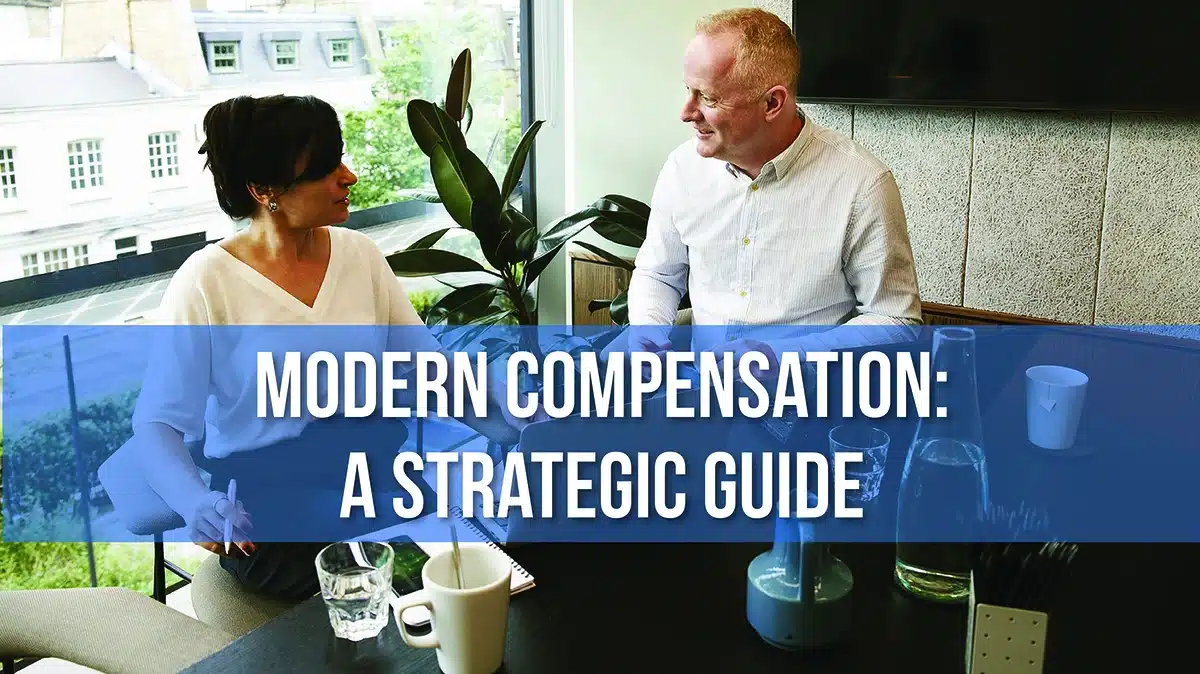Modern Compensation: A Strategic Guide
Author: Phil Hayes
A strong employee compensation strategy is essential for attracting and retaining top talent. When your pay, benefits, and company culture are aligned, you’re better equipped to fill vacancies with the talent necessary to thrive.
Compensation strategy is how an organization pays their employees, including commission plans, bonuses, profit sharing, and benefits. A well-developed plan should be transparent on how compensation, including raises and promotions, are determined as well as the anticipated timing for associated COLA, merit and/or performance-based pay increases.
Consider several factors when determining your employee compensation strategy. It should motivate employees to achieve goals and the organization’s mission, vision, and values. A solid strategy should also demonstrate you’ll ensure fairness in pay, promotions, and increases.
Another consideration for your overall compensation philosophy is determining if you want to lag, lead or match your market’s compensation.
- Choosing to lag, or pay less than the market rate, may make sense if qualified workers are abundant in the area or if you have an all-encompassing benefits package.
- Leading, or paying more than the going market rate, may make sense if you want to be more selective, have fewer qualified candidates available, have higher turnover rates, or want to increase morale and productivity.
- Many companies match or pay the market rate to remain competitive, however, they often have to play catch-up when market conditions change.
- Lastly, a mixed market or combination strategy may make sense if you have a variety of skilled and unskilled positions as well as both challenging and easy-to-fill roles.
Effective employee compensation strategies should be designed to reward the behaviors you desire. For instance, if your compensation plan rewards seniority, yet you want to be a performance-driven organization, it may be time to rethink the overall strategy.
Your compensation strategy should be regularly reviewed and updated to address evolving market conditions. Additionally, employee turnover data can identify and determine trends due to compensation or benefits and can also determine if adjustments and tweaks are needed to retain top talent.
Unfortunately, talent is a commodity and organizations often “get what you pay for.” Suppose you want great, engaged employees who are invested in the organization’s success. In that case, an attractive compensation package designed to reward them is essential.
Developing a compensation plan is no simple task, but remains a vital HR task for any successful organization. Regardless of how you plan your employee compensation strategy – whether it be by time span, designation, individual positions, or some other way – it makes sense to periodically reevaluate your plan and its effectiveness in addressing current challenges and opportunities.
In response to the shifting employment landscape, it might be time for review your current employee compensation strategy to ensure your organization is leveraging the best workforce results and outcomes possible.
Let’s connect if you want to continue the compensation conversation and explore a strategic, modern compensation solution for your organization.







